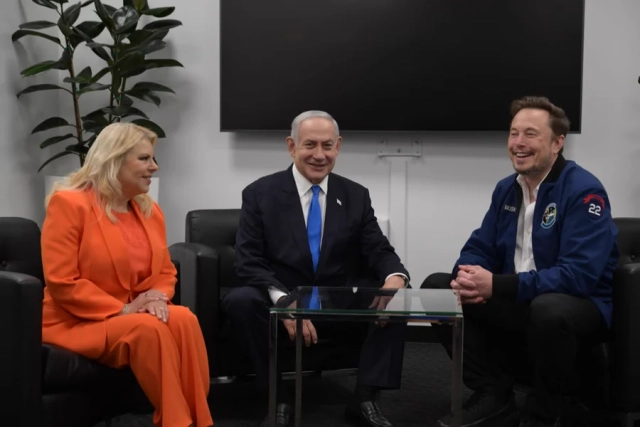In the wake of the recent justified military operation in Gaza, which was undertaken in response to a murderous terrorist attack by Hamas, a concerning trend has emerged. There has been a significant increase in the prevalence of anti-Semitic content on major social media platforms, with Twitter, in particular, standing out as a prominent hotbed for hatred against Jews and Israel. According to a recent report published by the Anti-Defamation League (ADL), this surge in anti-Semitism on Twitter witnessed a staggering jump of nearly 1,000% in the scope of anti-Semitic content.
This surge in anti-Semitic discourse on Twitter becomes even more pronounced when compared to data released last week by the Global Project Against Hate and Extremism (GPAHE). The GPAHE revealed that marginal platforms with permissive content policies, such as 4chan and Gab, also experienced an increase in anti-Semitic content, albeit to a lesser extent, with ratios exceeding 200%. However, Twitter's increase far surpasses these figures, raising serious concerns.
Twitter is buzzing about Musk's latest antisemitism, but if you read the thread (what the person he responded to what was responding to), it's way, way worse than it looks at first glance. pic.twitter.com/mINyjxkdPy
— msinformation (@msinformation22) November 16, 2023
Scholars, researchers, and experts have observed not only an increase in the volume of anti-Semitic content online but also a corresponding rise in anti-Semitic incidents in the offline world, particularly in the immediate aftermath of the terrorist attack on October 7.
The ADL's new data was obtained through the collection and computer analysis of posts on Twitter and Facebook from September 30 to October 13, encompassing the week leading up to and following the terrorist attack. In total, researchers analyzed 169,958 posts on Twitter and 15,476 posts on Facebook. To assess the sentiment of these posts, they utilized the Online Hate Index, a tool developed by the ADL specifically designed to identify anti-Semitic content online.
The findings reveal a stark contrast between the two platforms. On Facebook, there was a notable but not dramatic increase of 26% in the amount of anti-Semitic content in the week following the attack compared to the preceding week. In contrast, Twitter saw an alarming spike of 919% in the volume of anti-Semitic content. The reasons behind this discrepancy are not entirely clear. It is possible that Facebook may have more robustly enforced its content policies, or its content monitoring tools may have been more effective in removing such content. On the other hand, Twitter may have faced challenges in monitoring and moderating content effectively.
Disturbingly, data provided to the New York Times by the research company Memetica reveals that last month saw a surge in posts with the hashtag #HitlerWasRight on Elon Musk's platform, reaching a staggering 46,000 posts compared to an average of fewer than 5,000 posts per month in previous months, marking an 820% increase. Additionally, posts featuring the tags #DeathtotheJews or #DeathtoJews appeared 51,000 times in the last month, constituting a remarkable increase of 2,450%.
Why wasn’t this posted on Twitter (X) on October 8th?
— Mitch Berkowitz (@thedigiguy) November 13, 2023
Antisemitism much??
Even more concerning, Elon Musk himself expressed support for anti-Semitic sentiments in a tweet. A user known as "The Artist Formerly Known as Eric" made an anti-Semitic statement against the backdrop of rising anti-Semitism in the United States and worldwide, to which Musk responded with a troubling remark: "You have said the actual truth."


